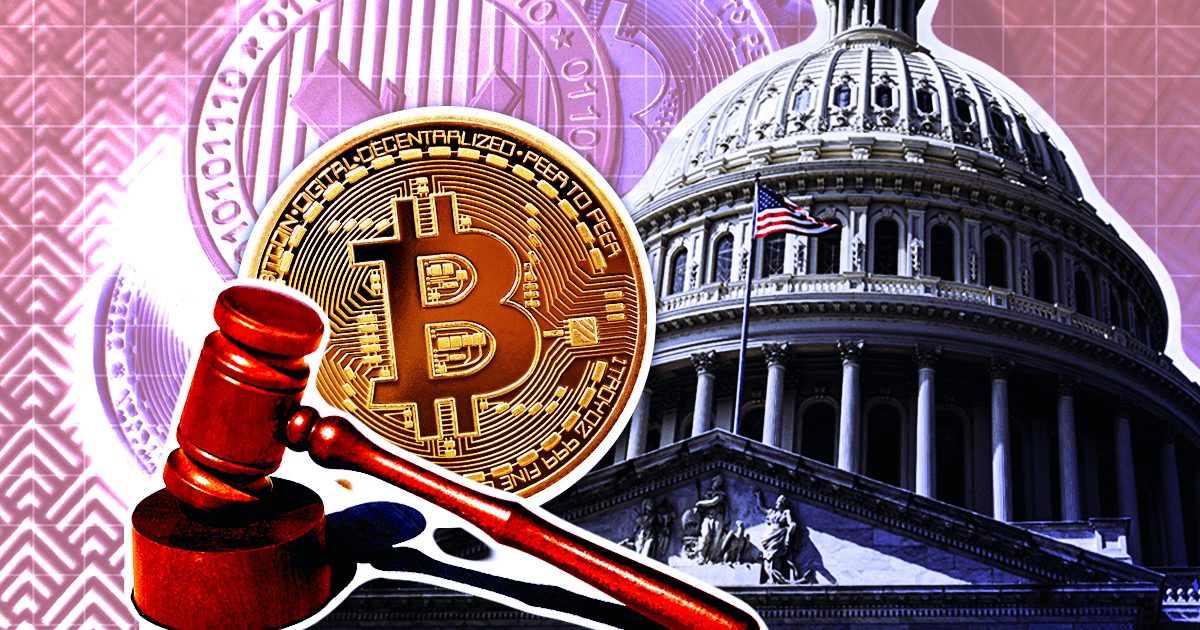Why Governments Can’t Stop Crypto: A Closer Look
Wondering why governments can’t stop crypto? Decentralization, global network resilience, and legal complexities make it nearly impossible. Cryptocurrencies operate without central control, which means no single entity can shut them down. This article breaks down the main reasons behind governments’ struggles to control this technology.
Key Takeaways
- The decentralized nature of cryptocurrencies makes it nearly impossible for governments to fully regulate or shut down systems like Bitcoin, as they operate without a central authority.
- Cryptocurrencies offer significant economic incentives, such as lower transaction costs and greater stability in unstable economies, driving their continued adoption despite regulatory challenges.
- Jurisdictional arbitrage allows cryptocurrency businesses and users to bypass stringent regulations by migrating to regions with favorable legal environments, complicating global regulatory efforts.
The Decentralized Nature of Cryptocurrencies

Cryptocurrencies thrive on their decentralized nature, which is key to their resilience. Unlike traditional fiat currencies managed by a central bank, Bitcoin and other cryptocurrencies operate without a central authority. This absence prevents any single entity from controlling or manipulating the currency, complicating efforts by governments to regulate or shut down the entire system.
The Bitcoin network, for example, is a global web of nodes that communicate and validate transactions. Users can connect to nodes outside their jurisdiction, bypassing local restrictions and making it practically impossible for any government to shut down the entire network entirely. This global connectivity ensures that even if one country attempts to ban Bitcoin, the network remains operational elsewhere.
Countries like China and India have attempted to curb Bitcoin usage, reflecting the tension between governmental control and cryptocurrency freedom. However, these efforts have met with limited success, illustrating the inherent challenges in controlling a decentralized system.
Global Network Resilience
Bitcoin’s distributed system has proven to be incredibly reliable, with only a few disruptions throughout its history. The decentralization of Bitcoin mining across multiple countries further minimizes the risk of network failure due to localized bans or disruptions. Even when a significant portion of miners in China were forced offline, the Bitcoin network continued to function smoothly, demonstrating its robust design.
In events such as natural disasters or government interventions, Bitcoin’s infrastructure support continued global operations. Satellite technology, for instance, can broadcast Bitcoin transactions even in regions with restricted internet access, maintaining network functionality under various conditions.
Countries facing extreme financial crises, like Venezuela, have turned to cryptocurrencies as a surprisingly lifeline. In these regions, cryptocurrencies provide a stable alternative to hyperinflated local currencies and unstable government policies, further proving the resilience and adaptability of the Bitcoin network in this reality.
Censorship Resistance

Governments face significant hurdles in enforce a ban on Bitcoin due to its global nature and reliance on a network of computers for transaction validation. The decentralized nature of cryptocurrencies complicates enforcement efforts across borders, making it challenging for any single government to exert control over illegal activities.
Public blockchains are inherently designed to resist censorship, allowing for unrestricted access to transaction data. This design ensures that once a transaction is recorded on the blockchain, it cannot be altered or deleted, making it difficult for governments to block or reverse transactions. Cryptocurrencies thus provide a means to protect wages against government seizure and facilitate remittances, which are crucial for many households.
The censorship-resistant nature of cryptocurrencies makes them highly appealing to users in oppressive regimes or unstable economic environments. By enabling financial freedom and protecting against government interference, cryptocurrencies offer a compelling alternative to traditional financial systems.
Legal and Regulatory Challenges

Varying regulatory priorities across countries create challenges for unified global action against cryptocurrencies. Recent U.S. Supreme Court rulings suggest limitations on federal agencies’ regulatory authority over cryptocurrencies. This evolving legal landscape complicates compliance, as companies navigate unclear regulations while continuing to innovate.
The introduction of the GENIUS Act in the U.S. aims to establish an easy regulatory framework specifically for cryptocurrencies. However, regulatory agencies often prioritize industry interests over public welfare, complicating the attempt to establish fair law news regulations.
Peer-to-peer exchanges further complicate regulatory efforts by allowing users to trade cryptocurrencies directly, avoiding the regulation that typically applies to commercial exchange. These legal and regulatory challenges highlight the complexity of regulating a decentralized and rapidly evolving technology.
As legislators and regulators grapple with these concerns, the cryptocurrency industry continues to grow and adapt, finding ways to operates within or around existing frameworks.
Economic Incentives for Continued Use

Economic incentives drive the continued use of cryptocurrencies by individuals and businesses, even in the face of government opposition. The advantages include:
- Traditional money transfer services often come with high costs and delays.
- Cryptocurrencies offer a more attractive option for remittances.
- Efficiency in cross-border transactions significantly encourages their use.
In regions where local currencies are unstable, cryptocurrencies offer a more reliable option for daily transactions. Businesses utilize cryptocurrencies to secure more stable foreign currencies, providing protection against local currency fluctuations. These economic benefits make cryptocurrencies an appealing alternative, ensuring their continued use even in the face of regulatory challenges.
The economic advantages of using cryptocurrencies extend beyond individual transactions. They contribute to broader economic growth by providing a stable and efficient means of conducting business in the economy. As more businesses and individuals recognize these benefits, the adoption and usage of cryptocurrencies are likely to continue growing.
Peer-to-Peer Transactions
The decentralized structure of cryptocurrencies enables peer-to-peer transactions, bypassing traditional banking systems and regulatory frameworks. In countries like Nigeria, where Bitcoin bans have been attempted, individuals have turned to decentralized platforms to continue trading.
Innovations such as smart contracts automate processes, reducing the need for intermediaries and increasing efficiency. These technological advancements enable rapid cross-border transactions, complicating government efforts to impose restrictions and control the flow of cryptocurrencies.
Peer-to-peer transactions also power individuals by providing them with direct control over their financial activities and ability. This empowerment is a significant factor in the continued adoption and use of cryptocurrencies, as it aligns with the broader trend towards decentralization and financial independence.
Technological Advancements
Blockchain technology enhances the security and transparency of cryptocurrencies, complicating government efforts to track and control transactions. It ensures the integrity of transactions, challenging malicious actors to manipulate data.
Rapid advancements in blockchain technology outpace regulatory responses, causing gaps in enforcement. This technological edge allows the cryptocurrency industry to stay ahead of regulatory efforts, continually evolving and adapting to new challenges. The anonymity offered by digital assets also attracts users looking to evade government oversight, adding another layer of complexity to regulatory efforts.
These technological advancements not only enhance the security and efficiency of cryptocurrencies but also contribute to their resilience against government control. As the updated technology continues to evolve, it will likely further entrench the position of cryptocurrencies in the global financial system.
Jurisdictional Arbitrage
Countries like the United Arab Emirates and Switzerland attract cryptocurrency businesses due to their favorable regulatory environments. Tax incentives and clear regulations in these jurisdictions target the establishment of blockchain projects and attract investors.
The migration of crypto businesses to supportive regions leads to the development of robust cryptocurrency ecosystems in those areas. Increased regulatory clarity in certain countries has encouraged major financial institutions to integrate cryptocurrency services, further legitimizing the industry.
The borderless nature of cryptocurrencies allows businesses and users to seek out jurisdictions with more lenient regulations, avoiding stringent government controls. This jurisdictional arbitrage ensures that cryptocurrencies can continue to operate and thrive, even in the face of regulatory challenges in other regions.
Energy Consumption and Mining
The electricity used in Bitcoin mining represents a significant cost, and fluctuations in Bitcoin prices do not always correlate with changes in energy consumption. Research indicates that during high price periods, mining’s electricity usage may remain stable or decrease, as miners sell off holdings instead of increasing energy consumption.
In high price periods, Bitcoin miners often increase their mining productivity without a proportional rise in energy consumption, which contradicts traditional supply-demand expectations. However, the energy consumption associated with Bitcoin transactions is significantly higher than that of traditional financial transaction systems, contributing to a substantial carbon footprint.
Policymakers are advised to control credit access for Bitcoin miners during low price periods to mitigate excessive energy consumption. This approach aims to balance the economic factors benefits of Bitcoin mining with its environmental impact, ensuring sustainable growth through monitoring for the industry.
Government Ownership and Acceptance

As of March 2025, the United States federal government holds approximately 198,000 Bitcoins, making it one of the largest state holders globally. The us government has proposed establishing a Strategic Bitcoin Reserve to utilize seized cryptocurrencies as a national asset.
Other countries, such as Bhutan and El Salvador, have also begun accumulating Bitcoin reserves as part of their national strategies in a world where the creation of state-level Bitcoin reserves is finally becoming common, with several U.S. states pursuing legislation for such reserves over several years.
Blockchain applications have been used by governments, like in Ukraine, to document and verify acts of war, aiding in accountability and evidence preservation. These technological adaptations enhance government efficiency while circumventing potential restrictions, highlighting the complex relationship between governments and software cryptocurrencies, and allowing us to trace the impact of these innovations.
Potential Global Coordination Challenges
Achieving a global ban on Bitcoin is questionable due to differing political environments among countries. Individual governments find it difficult to ban Bitcoin as it requires a coalition to effectively implement a ban. Attempts to eradicate Bitcoin, such as in China, are challenging and lead to economic punishments, demonstrating the high stakes involved.
Successfully banning Bitcoin necessitates disrupting its development, social networks, and applying pressure on Internet Service Providers (ISPs), which is a monumental task. These potential global coordination challenges highlight the complexity and difficulty of achieving a unified approach to banning cryptocurrencies. The differing priorities and political environments among countries make it unlikely that a global ban will be successfully implemented.
Summary
Cryptocurrencies, with their decentralized nature, global network resilience, and technological advancements, present a formidable challenge to government control. Despite various attempts to ban or regulate them, the economic incentives for continued use, coupled with peer-to-peer transactions and jurisdictional arbitrage, ensure their ongoing relevance and growth.
As we move forward, the complex relationship between governments and cryptocurrencies will continue to evolve. While regulatory and environmental challenges remain, the benefits and resilience of cryptocurrencies make them an integral part of the future financial landscape.
Frequently Asked Questions
Can the US government seize crypto?
Yes, the US government can seize cryptocurrency if sufficient evidence of illegal activity is gathered. They collaborate with exchanges to obtain judicial authorization for the seizure, typically by transferring the assets to government-controlled wallets.
Can the government control cryptocurrency?
Yes, the government can exert control over cryptocurrency through regulatory bodies like the Commodity Futures Trading Commission (CFTC), which oversees digital commodities. This regulatory authority allows for similar oversight as seen in traditional commodity markets.
Why can’t the government stop Bitcoin?
The government cannot stop Bitcoin because it is decentralized and globally distributed, making it nearly impossible to eliminate all nodes or prevent citizen connections with nodes in other countries. Consequently, any attempt to stop Bitcoin would require an unprecedented level of international cooperation.
How do cryptocurrencies resist censorship?
Cryptocurrencies resist censorship by utilizing public blockchains, which enable unrestricted access and safeguard against government interference in transactions. This inherent structure ensures that transactions cannot be easily blocked or reversed.
What are the economic incentives for using cryptocurrencies?
Utilizing cryptocurrencies provides significant economic incentives such as reduced transaction costs, quicker cross-border payments, and a more stable option in areas facing currency instability. This makes them an attractive choice for both individuals and businesses.

